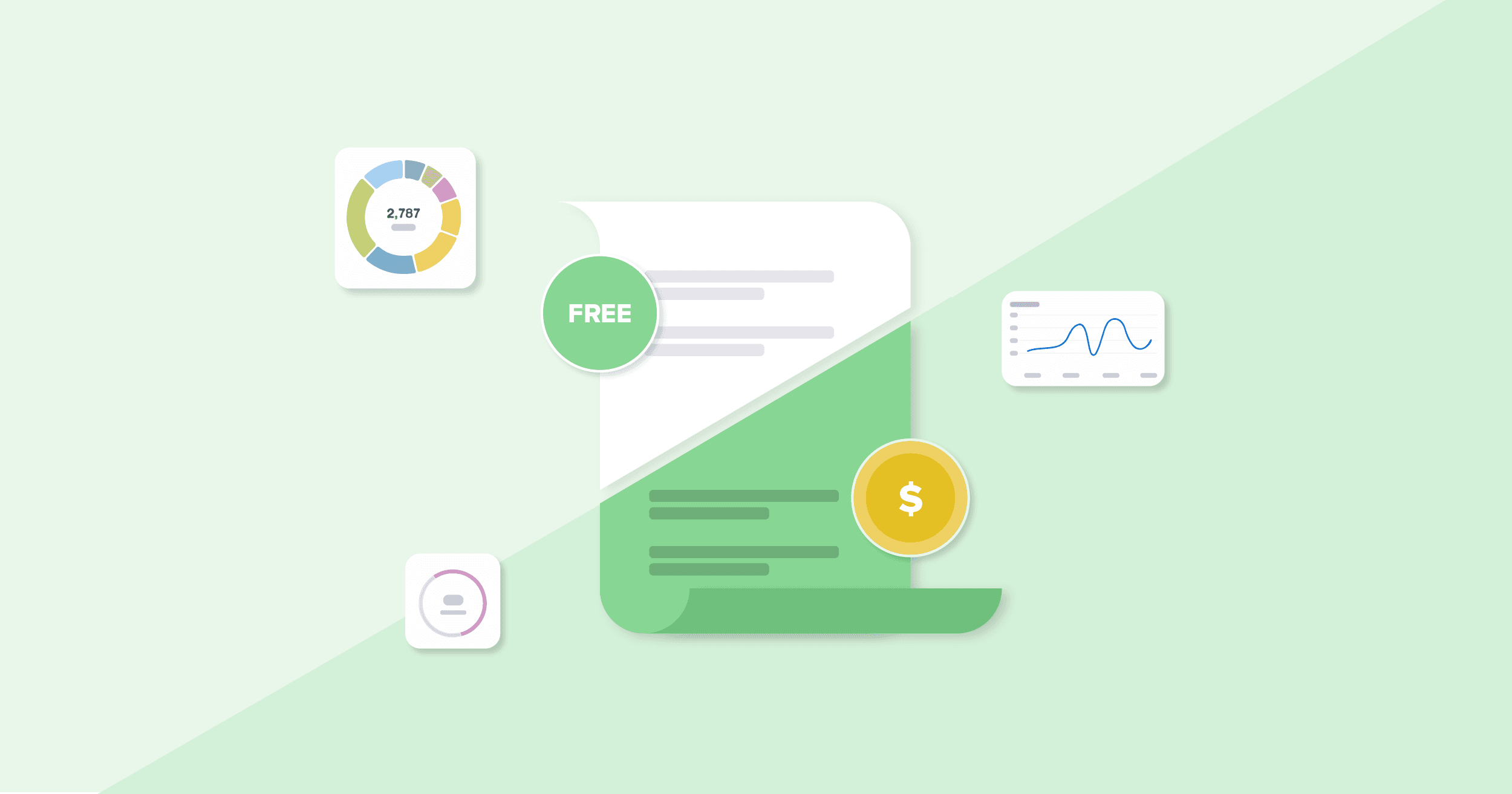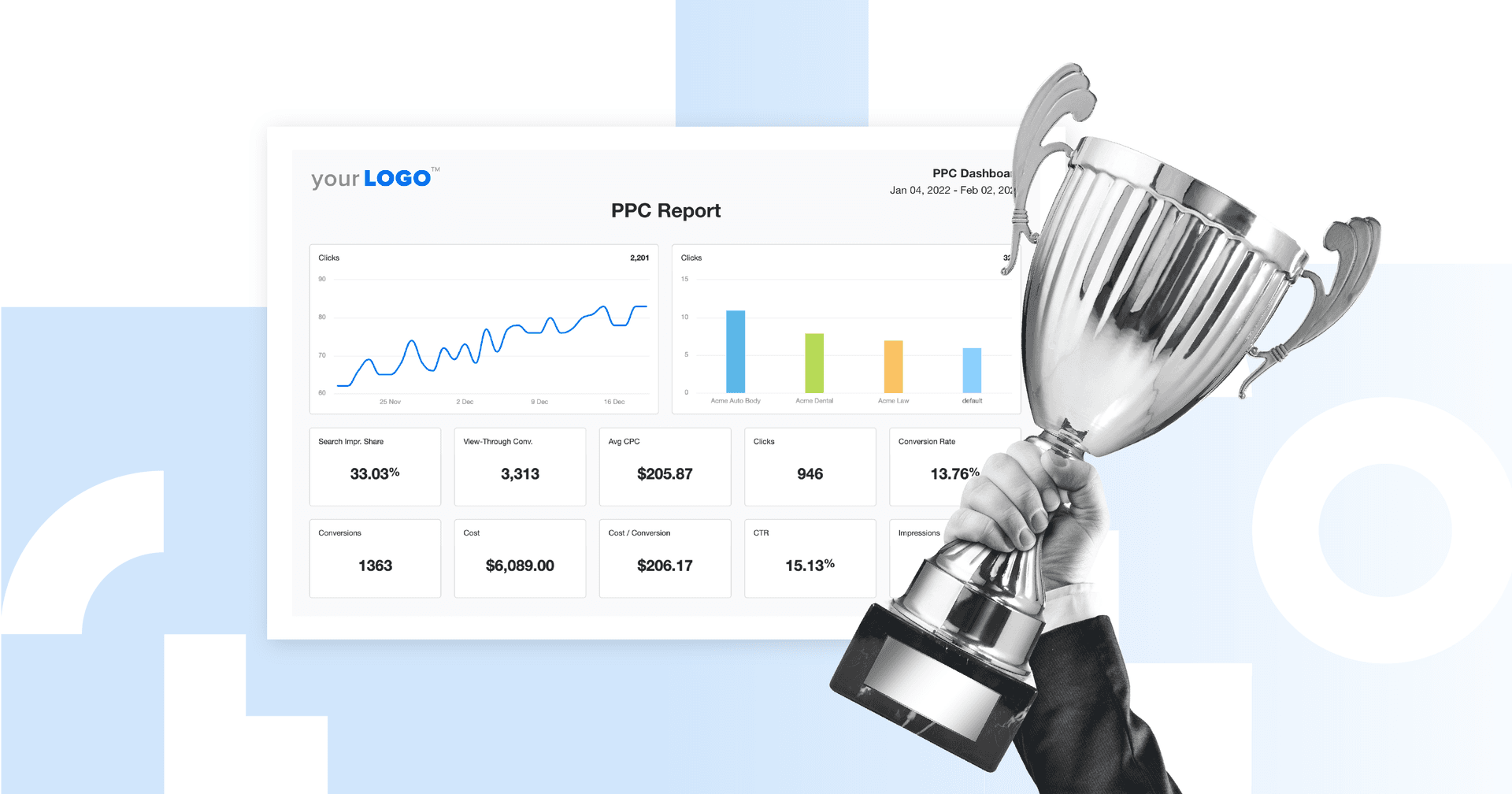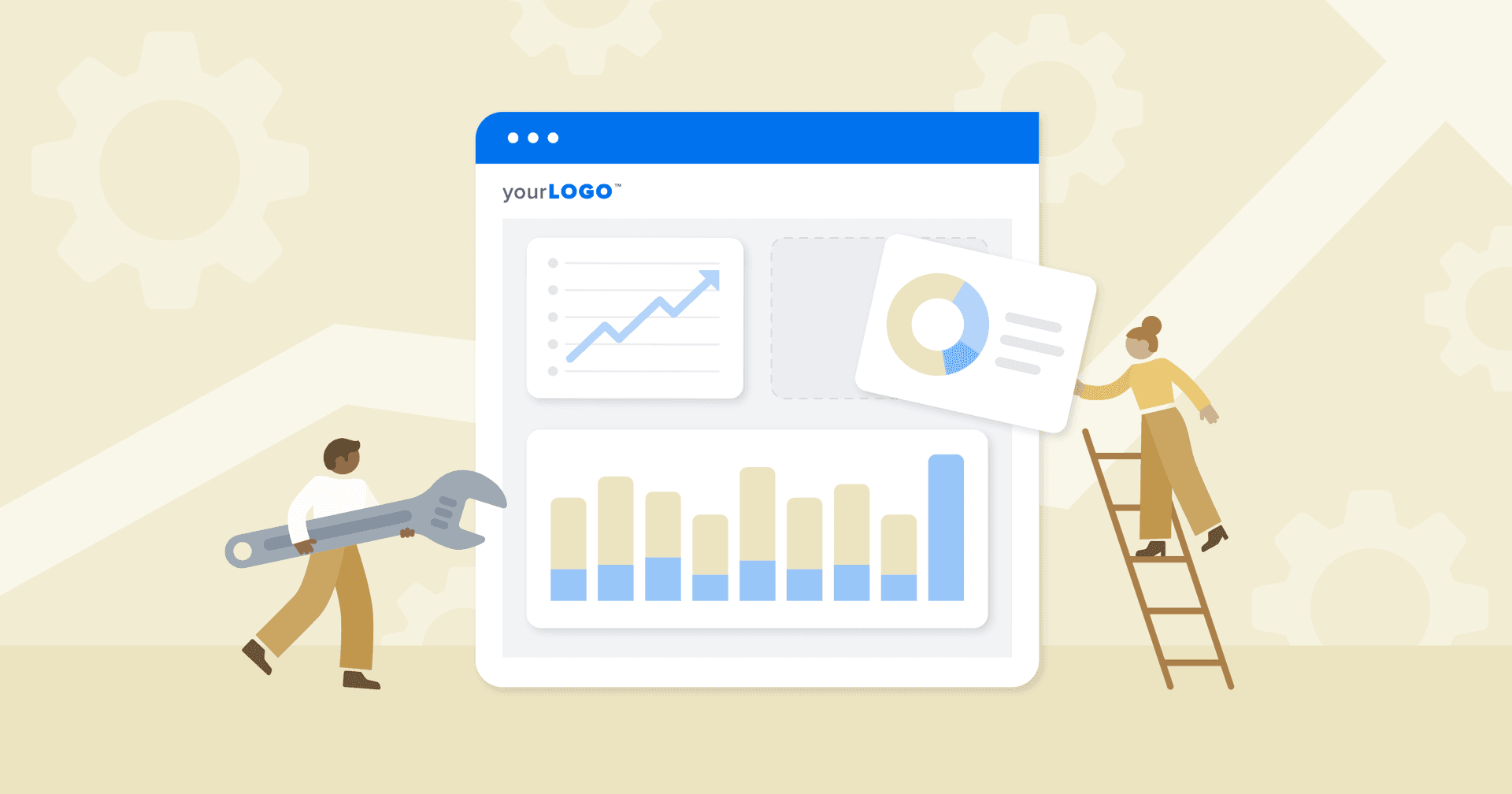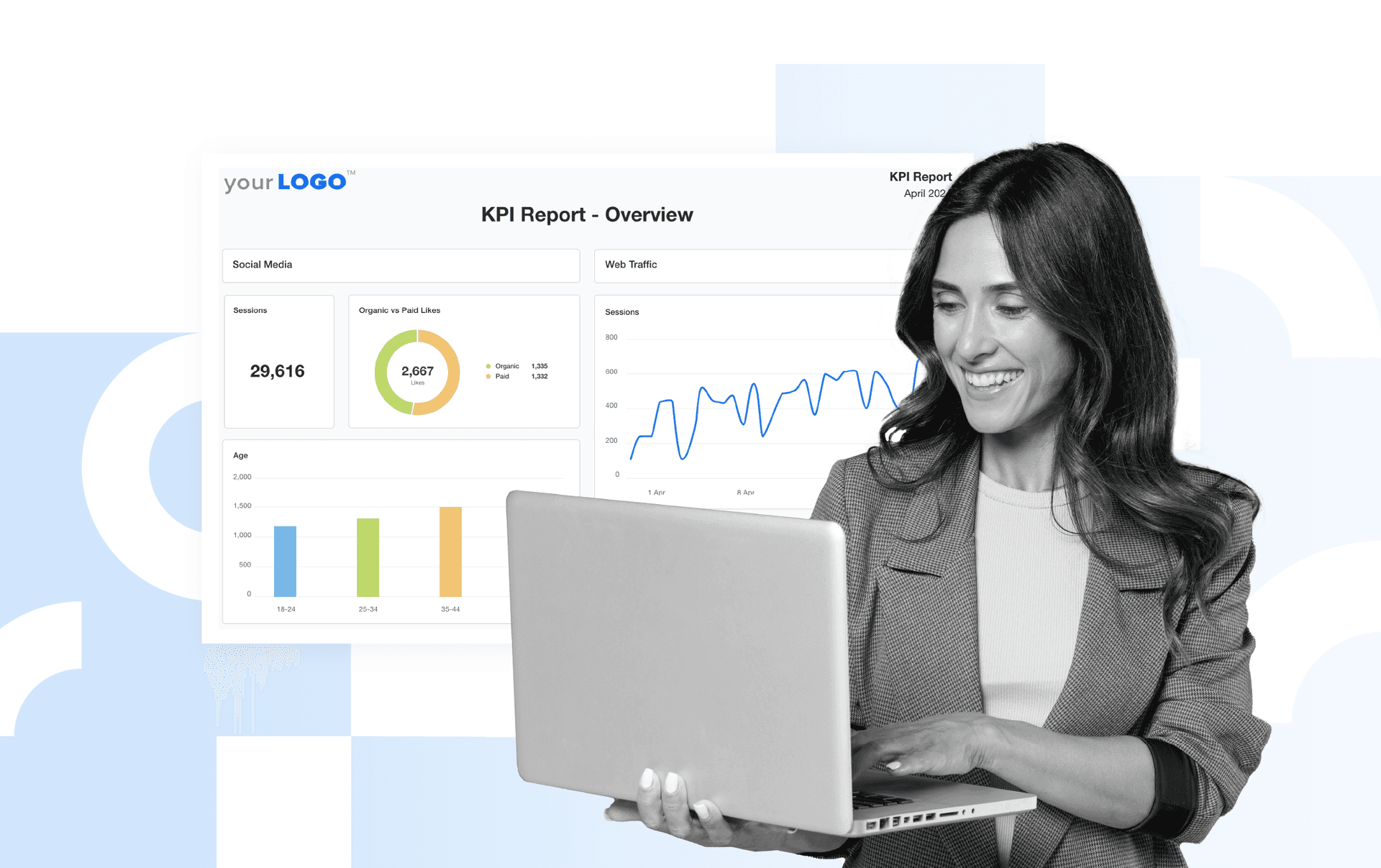Table of Contents
QUICK SUMMARY:
Deciding whether to charge for client reports requires balancing the need for transparency with the cost of report creation. Generating marketing reports consume resources while also demonstrating an agency's impact on a client's business. Offering data-rich, actionable insights can justify a fee, emphasizing the value added to the client's marketing strategy. This article discusses the fine line between fostering client trust and ensuring agency compensation.
Have you ever thought about the true cost of your client reports? How many hours go into them, and the value of the data coming out?
Client reports showcase the value of your agency’s services and are a critical tool for client retention. But marketing and business intelligence reports require an investment of time and resources, and agencies should be compensated for that. By giving them away for free, or charging too low of a per-report fee, you devalue the work that goes into creating them.
Some agencies even open themselves up to reporting abuse. After all, if reports are free, why not request dozens of ad-hoc reports every month?
For this article, we’ve asked top marketing agencies whether they charge a fee for marketing reports and found that they fall into three buckets:
Don’t charge anything for reports,
Bake reporting into the monthly retainer fees
Charge a small fee for reports.
To Charge or Not To Charge–Is Not Always an Easy Question
Campaign reports are an absolute must in the life of a marketing agency. After all, clients aren’t usually willing to blindly hand over ad spend or retainer fees without receiving some data about the return on their marketing investment. But all of that information comes at a cost of both your time and money.
Let’s take a look at an example:
Let’s say that your agency currently has 50 clients and you’re spending the industry average of 3.5 hours each month manually creating reports.
If you're paying your staff $40 an hour, that works out to be $7,000 in reporting costs each month, or $84,000 per year.
Even if you are able to cut that time down by 75% or more using AgencyAnalytics, that’s still $21,000 a year in non-billable hours spent gathering and presenting marketing data.
Clients want to know if they’re getting a return on investment (ROI) with their marketing budgets. Some understand the data (and want to see more of it) than others, but whether your reports are automated or not, should you be charging a fee to make them?
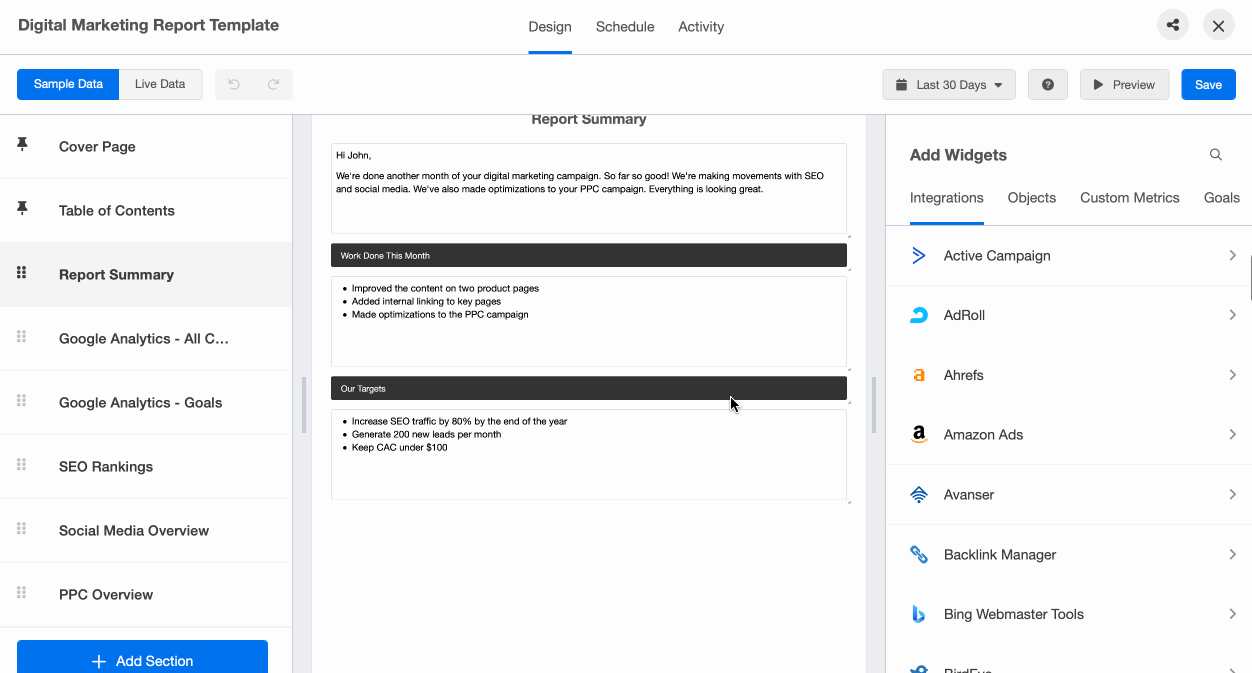
Automate your reports and free up your agency’s billable hours. Try AgencyAnalytics free for 14 days!
From a business perspective, charging a fee to recover the costs of generating the reports usually makes sense. On the other hand, no client wants to feel like their being charged additional fees to track the performance of programs that they are paying your team to create and optimize.
In fact, it’s one of the key ways your agency is able to clearly and consistently drive home the impact you’re making on your client's business. If your clients choose not to receive reports (because it costs them extra) it could be dangerous for your agency, since you’ll lose an important channel to prove value and retain the client.
So, how do you find that balance? We’ll share some agency reporting tips with you.
To start, make sure that your reports offer enough value that clients would be willing to pay for them (even if they don't have to).
“Our reports show our clients the results we achieve for them in an easy-to-understand visual. We provide monthly reminders of how we are helping their business grow with these reports.” - Denise Bowen, Managing Director of Web ROI.
If all your agency is doing is providing simple data points from the marketing platforms that the client could retrieve on their own, assigning a fee to that process could become troublesome. Plus, there is a certain amount of data interpretation that will be expected of your agency as part of the day-to-day campaign optimizations.
However, creating data-rich and visually appealing reports that translate those metrics into actionable insights adds value to these reports and is worth every penny. And the best way to do this is through data visualization.
You want your client’s data to tell a story so they easily understand and see the value your agency brings to their businesses. An agency should already know their client’s data inside out because they're using it to guide their marketing actions month after month.
Think about these key reporting concepts while determining if–and how much–you should charge for client reporting.
How Much Data Do Your Clients Request?
Understanding the amount of data your clients want to consume helps determine if you should monetize your reports.
Are their reports very lengthy? Do they include multiple platforms? Do they want access to a dashboard that your team created?
If the data being requested goes above and beyond the scope of what your agency would normally provide, this might be a case where you would attach a reporting fee.
Does Providing Comprehensive Reports Save Your Agency Time In Other Ways?
We can bet your team has experienced a client who calls nonstop to ask about a certain metric or campaign update.
If well-crafted client reports reduce the amount of time that account reps spend on the phone with clients to answer simple questions, then the reports may pay for themselves in that way.
Including videos of yourself explaining the data directly in the reports is another way to save your agency time in the long run. Creating a simple video that goes over a client’s wins or areas for improvement helps personalize the reports and is an alternative to booking in-person meetings so frequently.
What it really comes down to is finding the perfect balance between how much data your clients want to see and what they’ll actually understand. Creating an overwhelming report will typically result in your clients constantly calling for explanations or disconnecting from the data completely.
Are Multiple People Viewing the Reports?
Depending on your client, different teams may need a specific report, or want unique data included. For example, the CEO might want to see different metrics than the marketing or sales manager.
However, creating multiple report versions for a single client can become a drain on agency resources, taking away precious campaign optimization time. Test out different tiers of client reports or marketing dashboards and create a fee structure around who needs specific access.
How Much Time Is Your Agency Investing in Report Creation?
There is a balancing act between creating reports that reduce the need for calls and emails (another drain on your agency's time) and creating in-depth reports that help a client focus on their growth.
If your agency is taking advantage of the end-to-end automation options, including report scheduling and approval, that time savings may be enough of a return.
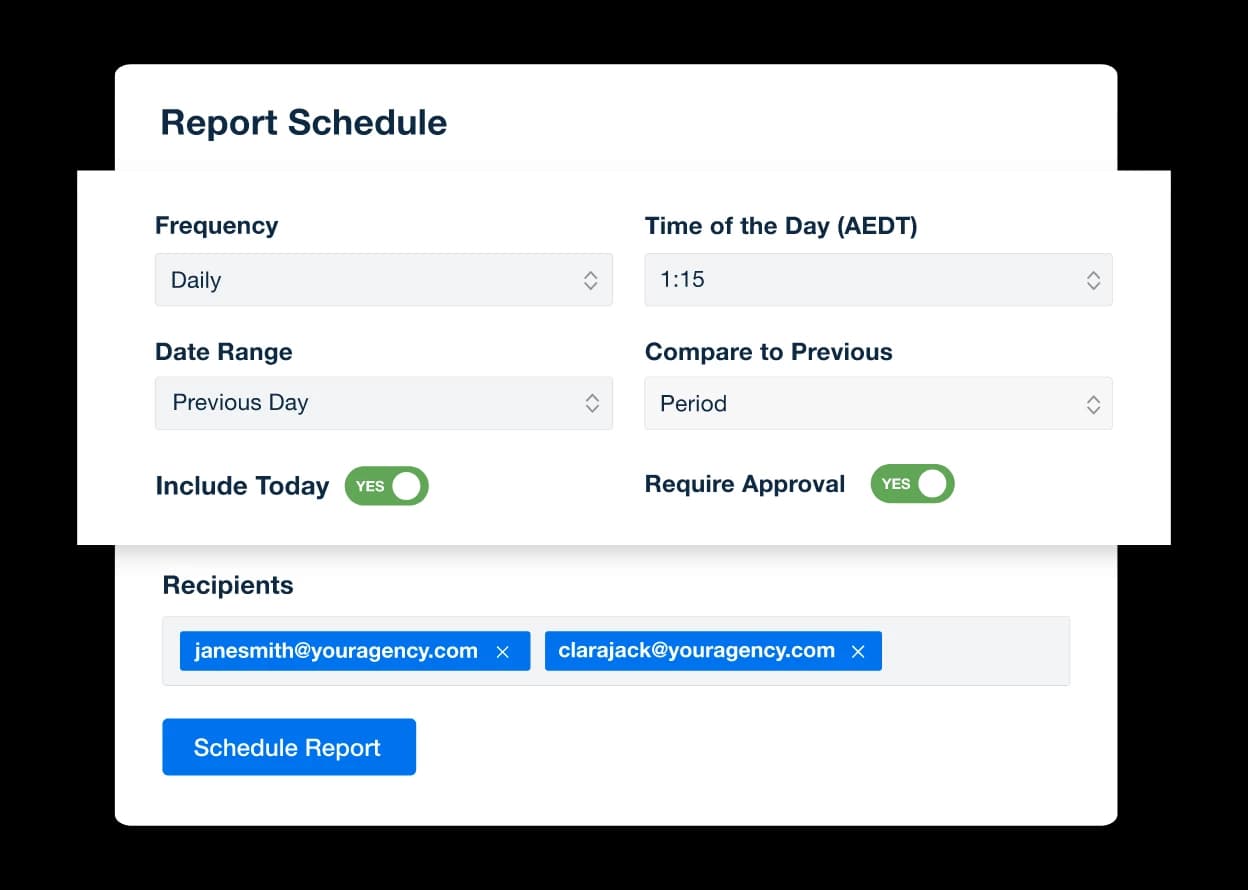
However, if your team is spending time analyzing and interpreting the data in a way that provides value beyond the metrics, that is something to consider when setting the reporting fees.
Do You Provide 24/7 Access to a Live Reporting Dashboard?
Giving your clients access to a marketing dashboard has many benefits. Instead of answering phone calls throughout the day about easily accessible metrics, why not give clients direct access with custom user permissions? It’s a win-win scenario for everyone.
“We’ve given our clients access to their dashboards so they can check in on their campaigns whenever they want. It allows them to get both a high-level view or an in-depth look and it’s really helped us maintain transparency with our clients.” - Lane Rizzardini, Co-owner of Marion Relationship Marketing.
However, should your agency cover 100% of the cost of the software that both you and the client are using? This could be a circumstance where a fee could be added depending on the number of users the client requests or how often a client is checking their marketing dashboard.
How Much Should an Agency Charge for Reports?
Once your agency has decided IF you are going to charge for client reports, the next logical question is… how much? Although we can’t suggest a specific dollar figure, here is a quick overview of some things to consider when setting your reporting fees, such as:
The size and complexity of the reports
The amount of time it would take the client to generate the report if you didn’t do it for them
The level of expertise required to analyze the data and provide insights
Hard costs associated with the report, such as keyword ranking or site audit costs (including an appropriate markup of course)
The risk of clients opting out of reports if the fee is too high
Your current fee model (retainer, per program, or PPC markup)
Even if you bake those figures into your agency’s retainer, consider clearly defining the number and type of reports that are included–and the extra fees required should the reporting demands exceed what’s included.
That way, you are showing the value of the reporting service you are providing while protecting your agency from report request nightmares.
Other Ways to Generate Revenue From Reports
Your reports are the perfect opportunity to generate additional revenue streams and to upsell new services to your clients–especially if their campaigns are performing well. Try making recommendations based on new channels or services they could benefit from or increase budgets or time constraints.
The point is to have both parties benefit from these upselling opportunities. We’ll unpack a few agency best practices when it comes to generating upsell revenue from client reports so your agency can make the most informed decisions.
Charging for Different Types of Reporting
Depending on the kinds of reports you’re creating, you may be able to charge a fee–especially if your clients are taking up your valuable time and resources.
Consider the difference in both effort and value of the different reporting options available to you, such as:
A monthly campaign summary showcasing the performance metrics of individual campaigns
Dynamic campaign dashboards that a client can access 24/7 to dig into specific data points
Reports that go beyond the campaigns being managed by your agency, including weekly keyword ranking reports, social media reporting, or SEO site audits.
Visualized reports that include goal tracking, trend graphs, and more.
Ad-hoc reports that answer a specific question, especially during your client's annual budget or planning sessions.
Imagine if a client is constantly calling your team to ask how their campaign is doing. Or if you can answer specific questions regarding their keyword ranking, even though you don't (currently) handle their SEO.
“If a client needs something urgently, we give them access to their AgencyAnalytics dashboard. And that 24/7 access has been a fundamental way for our team to save time. It doesn’t replace the value of an in-person meeting, but our clients love having those metrics available to them.” - David Metcalf, Director at Distl.
It won’t be sustainable in the long run for your team to answer requests at the snap of their fingers. And if giving access to a dashboard won’t cut it, charging for an executive-level or ad hoc report would be a way for your agency to justify the use of the resources needed to create it.
Give some of these strategies a try when creating a report to drive more agency income from reporting processes:
Goal Tracking
Understanding your client’s unique needs and setting clear goals ensures everyone is on the same page. Try using the goal tracking tool in your marketing dashboard to clearly demonstrate progress towards their goals and any opportunities for adjustments.
By incorporating their overall business goals alongside your agency's campaign goals, you automatically provide a report that has more value to the client than a traditional marketing report.
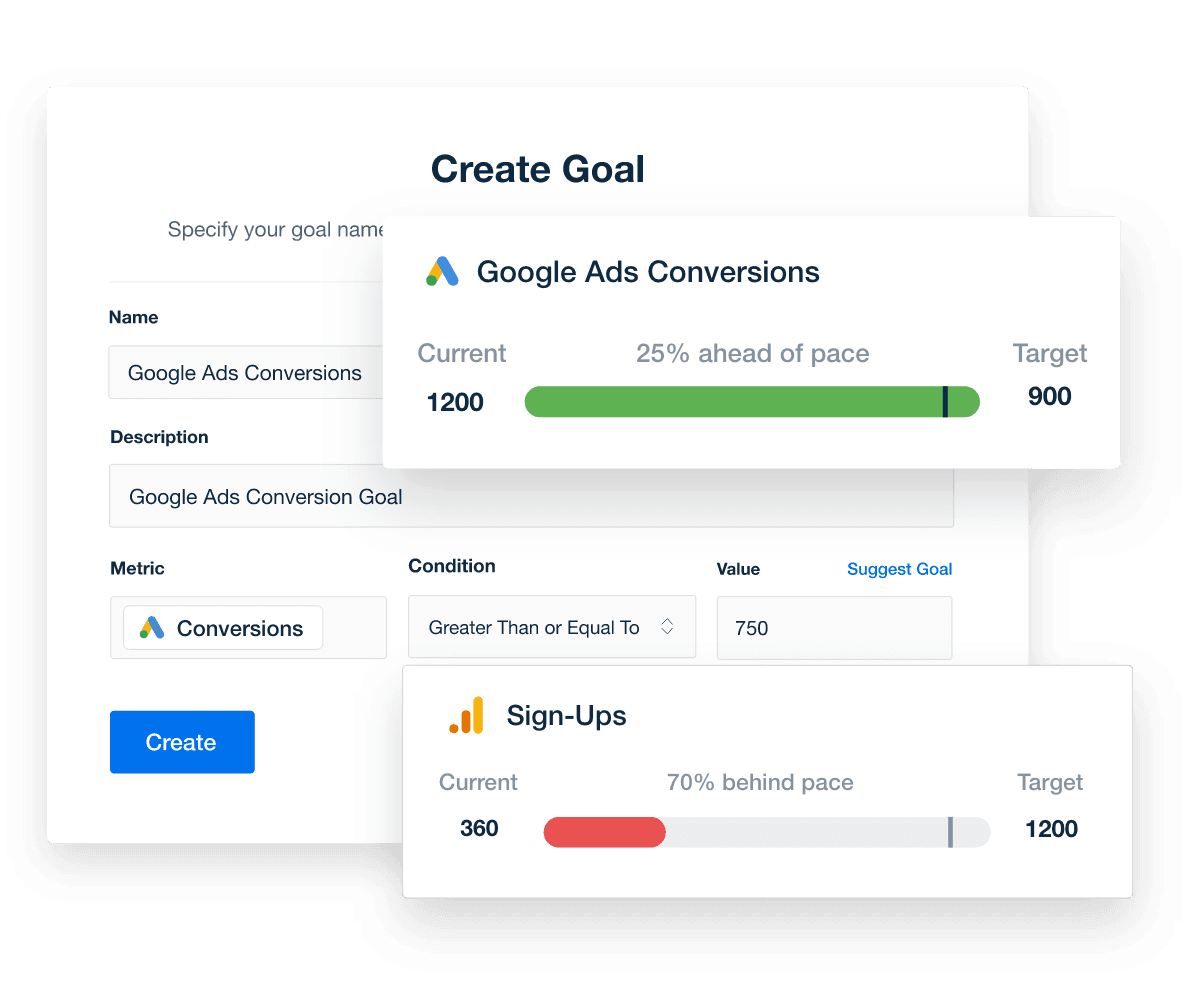
Cross-Campaign Reporting
Recommending services like performing a regular SEO site audit, creating a Google Search Console dashboard, running a Google Business Profile audit, or tracking the client's top keyword rankings are great ways to boost their other marketing efforts. And, instead of paying for these services separately, they can easily be rolled into your agency's monthly reports (for a small additional fee).
At the end of the day, if your team is setting up their reports using a pre-built report template or marketing dashboard that can be used across a variety of clients, it wouldn’t be right to charge a substantial fee.
But if you're going above and beyond to provide your clients with unique insights, there is value to that. After all, your clients want to know you’re taking care of their business from beginning to end.
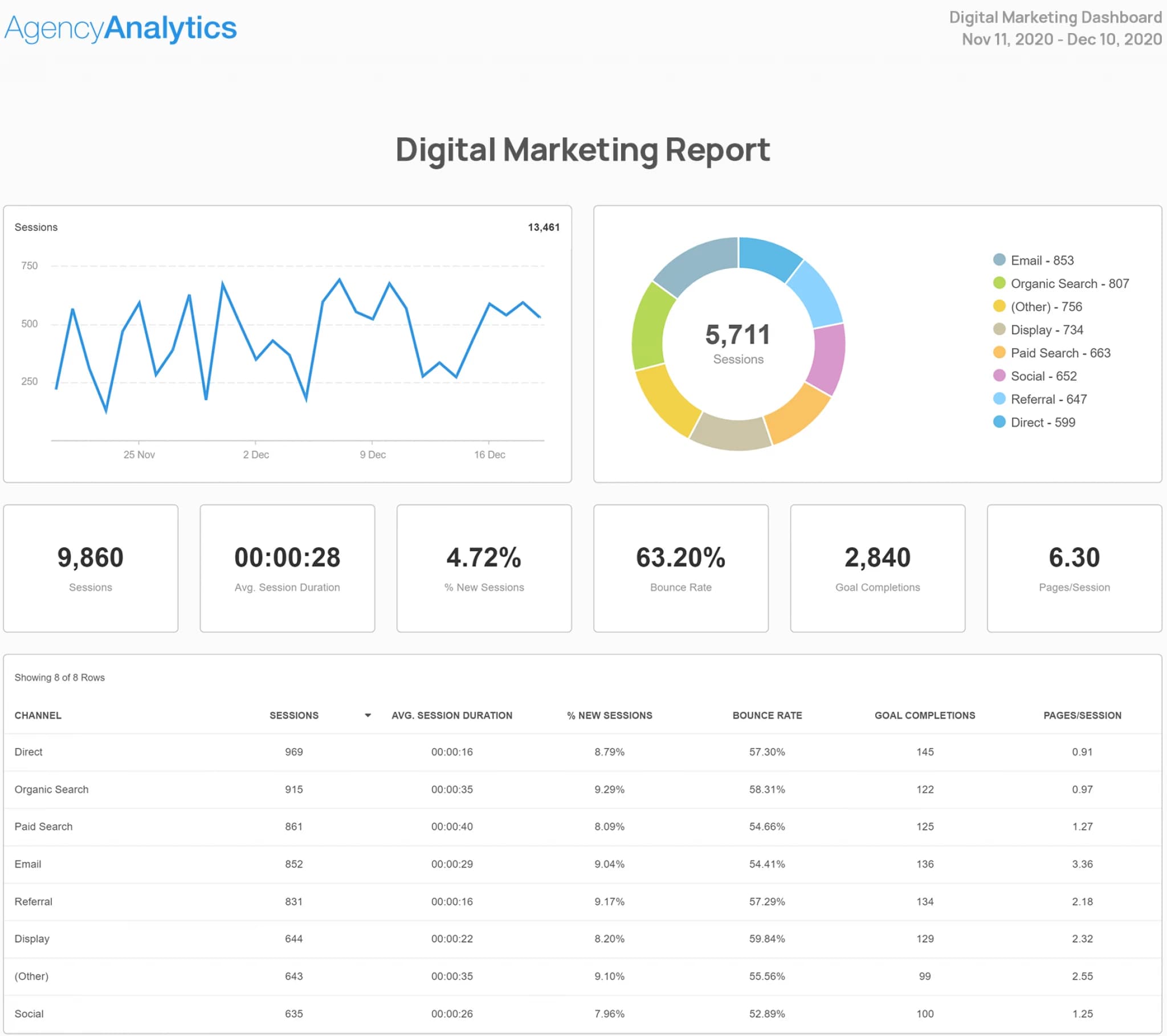
Use your best judgment when it comes to the time your team is spending on client reports and see if there’s an opportunity to deliver more data that’s profitable for your agency.
Using Marketing Reports as an Automated Upsell Engine
Your agency is in the thick of client data on a regular basis. While you’re compiling reports, why not make informed predictions about what could be getting them more results?
Consider this scenario.
Your client is paying you for PPC services. However, because you have access to their social media accounts, you notice a freelancer is in charge of their organic social media management. Or maybe they’re doing it in-house. Either way, the data indicates that they could be doing better to boost their paid social results; it would be an easy upsell to recommend this service to your client.
Read More: How Much To Price Your Social Media Management Services
This is the exact strategy that Michael Gasser’s agency has found extremely successful.
“Clients realize that Squeeze is the one that is effectively reporting in a way that allows them to assess other agency's work as well. And oftentimes they realize that we find the best solution for them to drive their revenue up as fast as possible.” - Michael Gasser, Co-Owner & Partner of Squeeze Marketing.
Reporting on other services your agency may not currently be providing gives you valuable insights into your clients’ markets. Plus, it generates improved optimization opportunities while creating an automated upsell funnel to generate more business. Everybody wins!
By offering to include items beyond your agency's scope in your client reporting, you create an additional layer of transparency and show that you have their best interests in mind. This way, your agency creates long-lasting relationships that have the potential to grow over time.
That approach doesn't work for all agencies. For example, Consultwebs say they prefer not to use their reports for client upselling.
“Although reports can create new upselling opportunities, our reports are based on 100% data based on the client's monthly performance. We might suggest what's working and what isn't but ultimately focus on the monitoring aspect and give firms space to analyze their data to propel their firm forward.” - Alessandra Torres, Copywriter at Consultwebs.
By remaining focused, Consultwebs’ clients are empowered to come to their own conclusions to make informed business decisions. Their agency makes recommendations based on what’s working and what isn’t with their current marketing efforts. But their clients are the ones in the driver’s seat of their investment.
Increase Fee-Based Spend
Your client reports can lead to making other recommendations such as increasing ad spend.
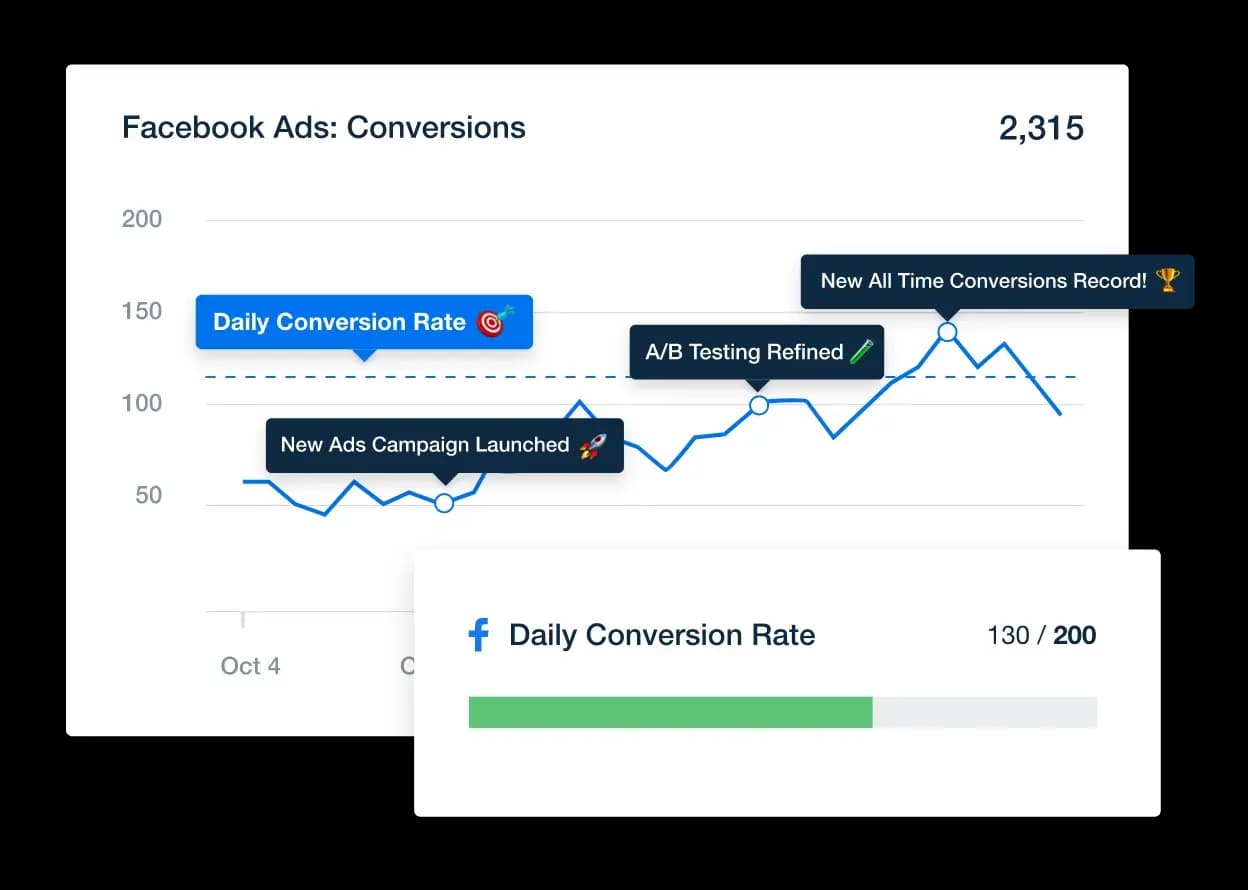
If your clients are running a paid campaign on Facebook for example, and their report shows they’re generating great results in a specific geographic location, why not recommend an increase in budget to get them even more results? If that contributes to a pre-determined KPI, of course.
“If the data indicates that there are additional opportunities to increase ad spend, the reports we generate with AgencyAnalytics is how we communicate it. We also use the data to propose additional services like SEO, website enhancements, and newsletter campaign optimization.” - Ryan Hayes, CEO of Sparrow Digital.
There are other ways to take their conversions to the next level. If your reports include call tracking, the data will reveal what calls were answered, how long the calls were, any specific keywords that were used that show buying intent, and more.
This data allows your agency to make valuable recommendations to optimize your client's current campaigns. Not to mention, they would appreciate the lead on who is a qualified or unqualified lead and another way your agency demonstrates value.
Creating Proposals for New and Existing Clients
When making recommendations to your clients, whether they’re new or existing, creating a proposal is a great way to demonstrate your expertise. Besides making informed decisions on your client’s behalf, marketing proposals can also help showcase your agency's breadth of offerings.
If your clients are spending less money on their marketing efforts or cutting back on project budgets, how do you recoup those losses? By finding new sources of revenue.
Wondering where to start when you’re drafting up a proposal for the services your agency offers? Don’t worry! We’ll walk you through what should be included, how long they should be, plus free templates to follow, and more.
Winning SEO Proposals
A well-thought-out SEO proposal offers the chance to convince a potential client that your agency is the perfect fit for them. And for existing clients, bringing up search engine optimization is an opportunity to upsell with an SEO project.
Follow our guide and get started with our free proposal template to impress your clients and seal the deal!
PPC Proposals That Convert
Want to land more PPC clients but don’t know where to start? Not sure how to price your PPC services? With the right tools and information, your agency can provide personalized recommendations that close more deals. You want to showcase how your agency will bring value to your clients and deliver promised results, not just your services.
Successfully pitch your agency’s PPC capabilities to potential clients by following our lead-gen template.
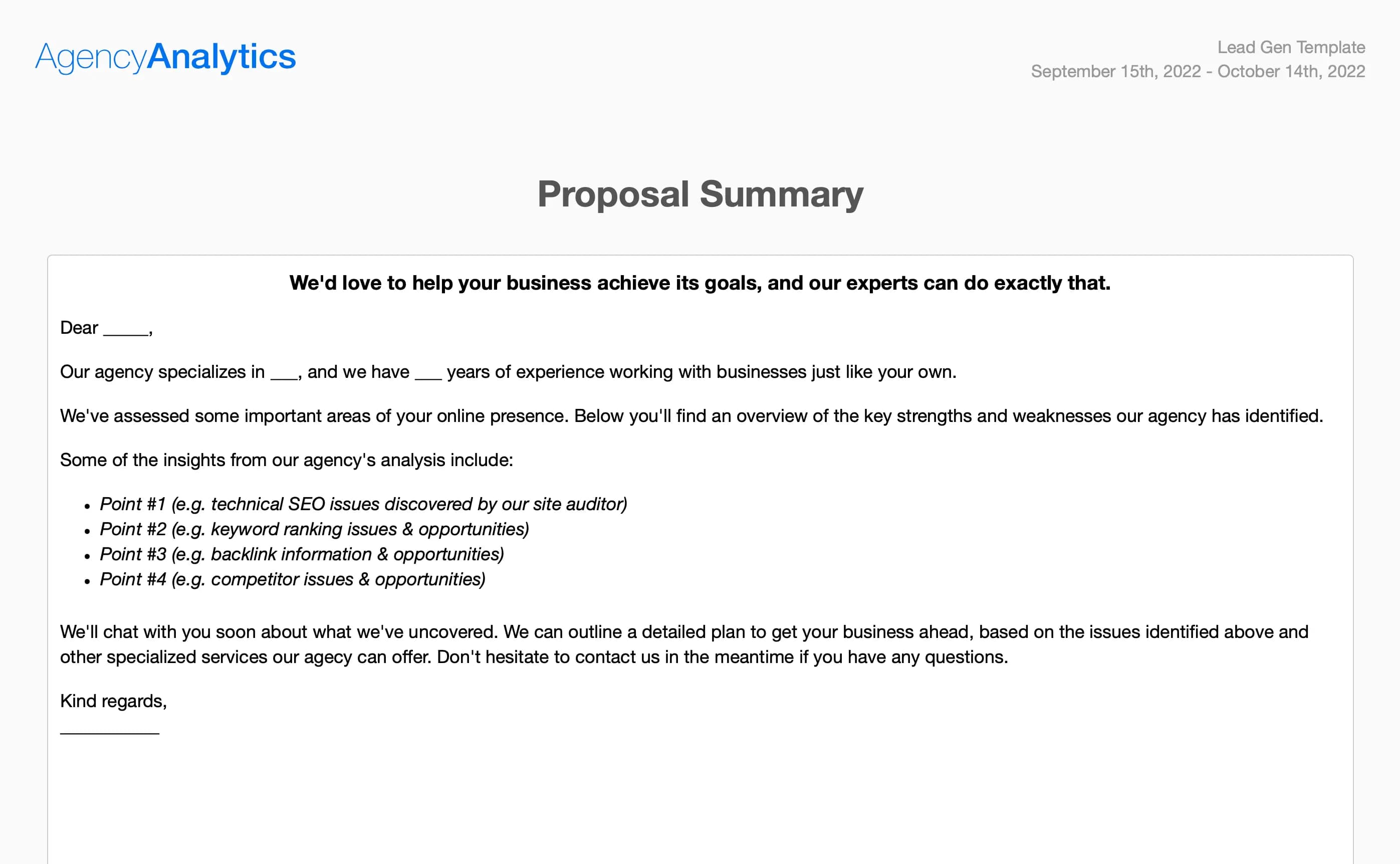
Write a Winning Social Media Proposal
It’s important to prepare a strong proposal that showcases your agency's professionalism as you onboard a new social media client.
Not sure what to include in your social media proposal template? We’ve created a guide that includes a social media report template for your marketing agency to confidently onboard new clients at scale.
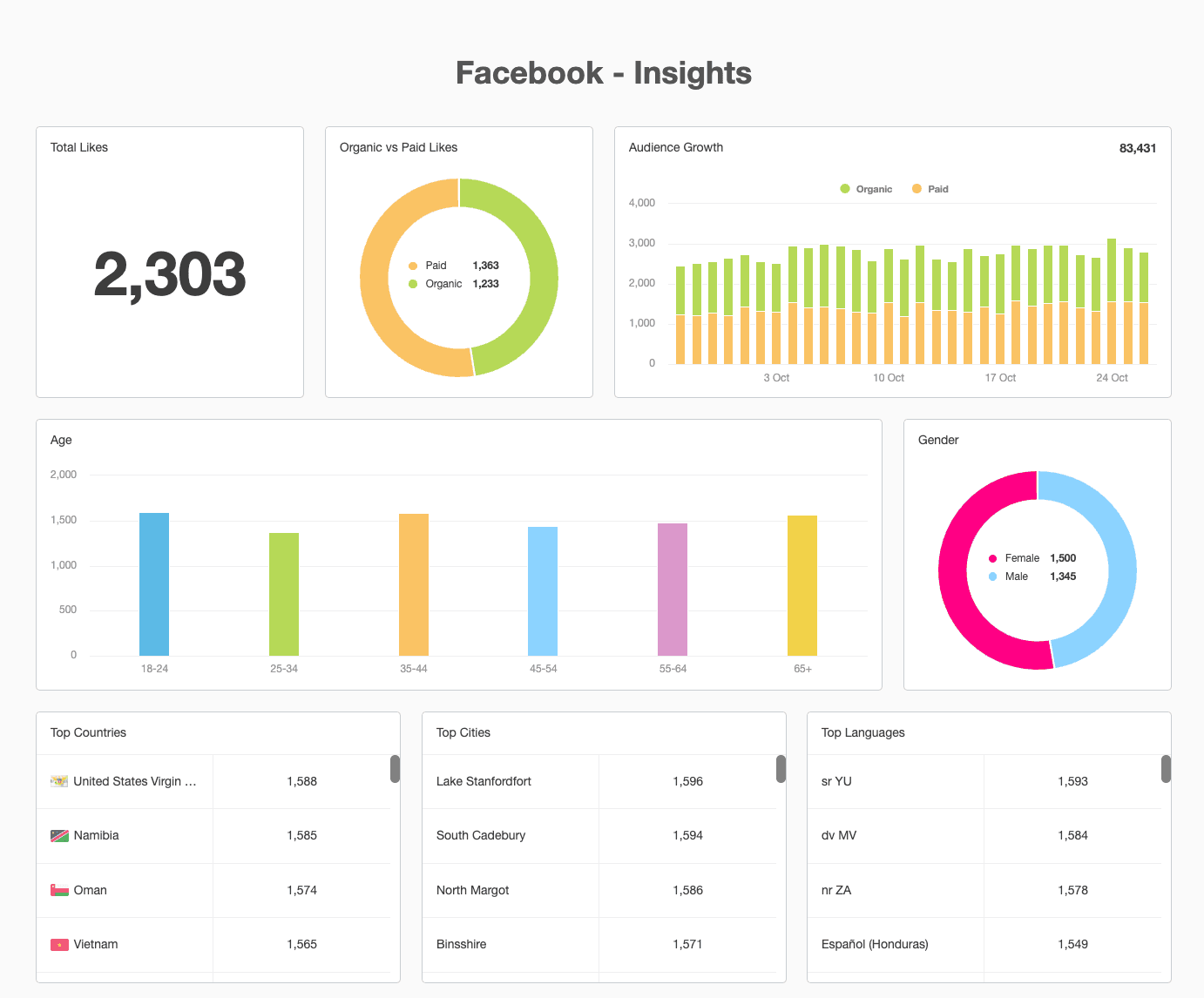
Summary & Key Takeaways
At the end of the day, your client reports should be clear and easy to understand. They show your clients the results you’ve achieved for them and how you’re helping their businesses grow. Your goal should be to create reports that your clients would be willing to pay for, even if they don’t have to.
There are pros and cons to charging a fee for client reporting. The biggest advantage, of course, is that it's an opportunity to turn an expense into a revenue stream. The biggest disadvantage is how charging a fee for this service can impact the agency-client relationship.
If your agency does not want to charge for this service, make sure that you are streamlining the processes as much as possible to win back billable hours.
Creating report templates and marketing dashboards gives you extra time to focus on gaining recurring revenue from your client reports–benefitting your agency and the clients you serve.
Put your entire reporting process on autopilot with AgencyAnalytics. Start your free 14-day trial today.
Client Reporting Made Easy with Customizable Report Templates
Multi-Channel Report Templates | Platform-Specific Report Templates |
|---|---|

Written by
Richelle Peace is a writer with a degree in Journalism who focuses on web content, blog posts, and social media. She enjoys learning about different topics and sharing that knowledge with others. When she isn’t writing, Richelle spends time teaching yoga, where she combines mindfulness, movement, and her passion for wellness.
Read more posts by Richelle PeaceSee how 7,000+ marketing agencies help clients win
Free 14-day trial. No credit card required.



